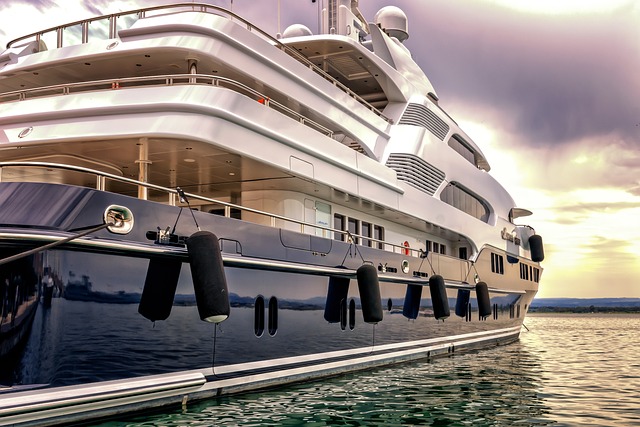Share This Article:

What Do You Think: Could Yacht Club Worker Sue Under Federal Admiralty Law?
12 Sep, 2023 Frank Ferreri

Los Angeles, CA (WorkersCompensation.com) -- There is federal law that governs what happens on navigable waters, but when does it apply to workers' compensation law?
Such was the question a California appellate court recently tackled when a yacht club worker embarked on a voyage that tested the boundaries of exclusivity.
A worker for a yacht club fell while stepping from a dock to a boat. He sued his employer under federal admiralty law, and the trial court ruled in the club's favor. According to the court, the worker was prevented from suing under federal admiralty law by the exclusivity provisions of California's workers' compensation law.
The worker appealed, contending that he stated claims of negligence and unseaworthiness that were viable under federal law as he was using a hoist to lower the boat into navigable waters.
Through amendments to the Longshore Act, Congress in 1984 specified employees covered by state workers’ compensation law working at a “club” are covered by state workers’ compensation law and not federal law if they are eligible for state workers’ compensation.
In particular, the amendments exclude from Longshore Act coverage individuals employed by a club, camp, recreational operation, restaurant, museum, or retail outlet if they are subject to coverage under state workers' compensation law.
Did the worker have a case under admiralty law such that he wasn't limited exclusively to California's workers' compensation statute?
A. Yes. Because of the need for uniformity of general maritime law, federal admiralty provisions must apply.
B. No. The 1984 amendments excluded yacht club employees from the Longshore Act's workers' compensation system and relegated them to coverage under state workers' compensation laws.
If you chose B, you agreed with the court in Ranger v. Alamitos Bay Yacht Club, B315302 (Cal. Ct. App. 09/06/23), which upheld the trial court's ruling and determined that Congress's 1984 legislation remitted the worker to the exclusivity of workers' compensation.
Workers' Comp 101: What is admiralty law? The court in the Ranger case explained that the Constitution implicitly directed courts sitting in admiralty to proceed as common law courts. Where Congress has not prescribed specific rules, these courts developed an "amalgam" of traditional, modified, and new common law rules. That amalgam is the general maritime law, which is no longer the exclusive province of federal judges. Congress and the states legislate extensively in these areas. When exercising their common law authority, admiralty courts look primarily to legislative enactments for policy guidance. As the court highlighted that in contemporary maritime law, the overriding objective is to pursue the policy expressed in congressional enactments.
In reaching its decision, the court looked to the 1984 amendments and explained that through them Congress sharpened the Longshore Act's focus to exclude employees who, although they happened to work on or next to navigable waters lacked a sufficient nexus to maritime navigation and commerce.
"A core part of the state workers’ compensation bargain is that injured workers get speedy and predictable relief irrespective of fault," the court explained. "In return, workers are barred from suing their employers in tort."
california case management case management focus claims compensability compliance courts covid do you know the rule emotions exclusive remedy florida FMLA fraud glossary check health care Healthcare hr homeroom insurance insurers iowa leadership medical NCCI new jersey new york ohio osha pennsylvania roadmap Safety state info technology texas violence WDYT west virginia what do you think women's history women's history month workcompcollege workers' comp 101 workers' recovery Workplace Safety Workplace Violence
Read Also
About The Author
About The Author
-
Frank Ferreri
Frank Ferreri, M.A., J.D. covers workers' compensation legal issues. He has published books, articles, and other material on multiple areas of employment, insurance, and disability law. Frank received his master's degree from the University of South Florida and juris doctor from the University of Florida Levin College of Law. Frank encourages everyone to consider helping out the Kind Souls Foundation and Kids' Chance of America.
More by This Author
Read More
- Apr 16, 2025
- Frank Ferreri
- Apr 16, 2025
- Claire Muselman
- Apr 16, 2025
- Chris Parker
- Apr 16, 2025
- Chriss Swaney
- Apr 15, 2025
- Claire Muselman
- Apr 14, 2025
- Frank Ferreri




